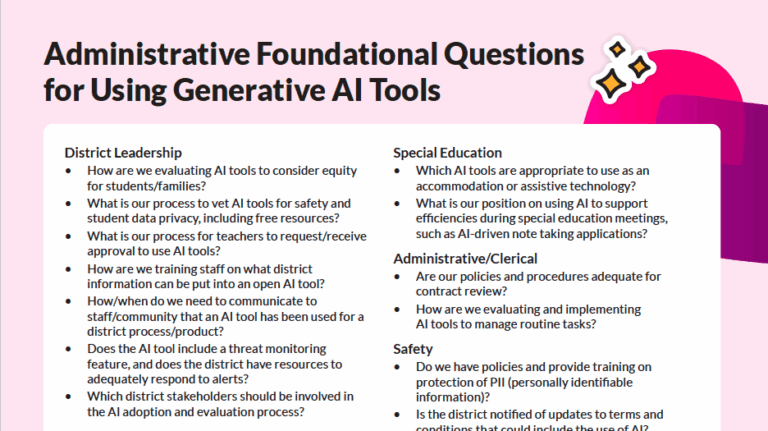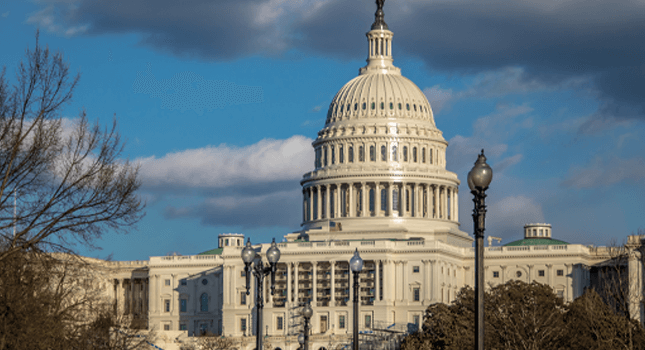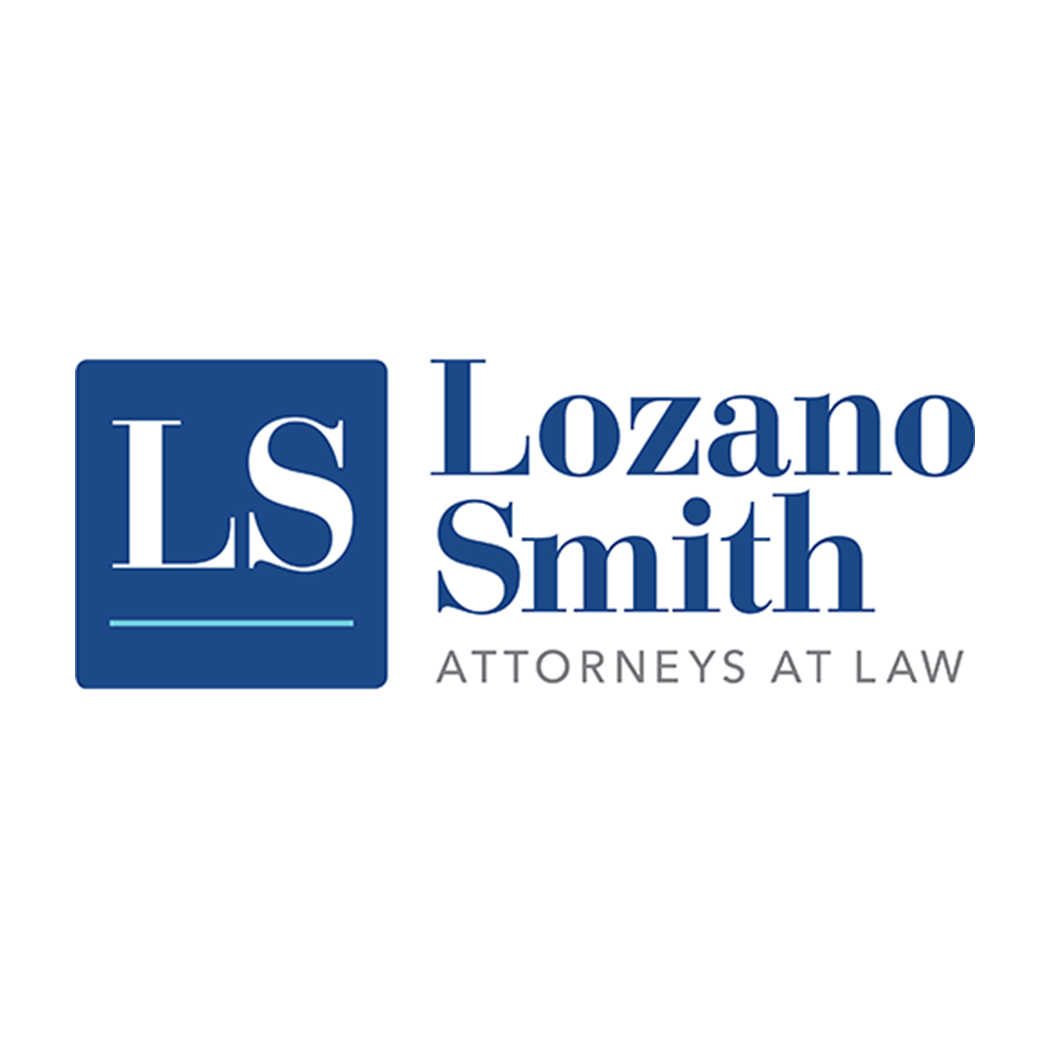This resource is provided by ACSA Partner4Purpose Lozano Smith.
In a recent decision by the California Fourth District Court of Appeal, a public school district successfully asserted immunity from liability from an employee’s discrimination claims based on being denied permission to work exclusively from home after the COVID-19 pandemic as a reasonable workplace accommodation.
In Allos v. Poway Unified Sch. Dist. (2025) 112 Cal.App.5th 822, the appellate court held that the employee’s claims under California’s Fair Employment and Housing Act (FEHA) and Labor Code could not survive Government Code section 855.4’s protections, which shield public employees and entities from liability for injuries caused by their decisions to perform or not perform acts to promote public health. The Court of Appeal, in upholding the trial court’s order granting the school district’s motion for summary judgment, agreed that to the extent the employee’s claims were based on the district’s decisions to allow employees to work from home in response to the pandemic and subsequently to require their return to in-office work, the claims were barred. The Court additionally affirmed that regardless of Government Code section 855.4’s applicability, the employee failed to demonstrate a protected disability.
Background
Plaintiff Kheloud Allos (Allos) held the position of Senior Business Systems Analyst for Poway Unified School District (District) since 2006. Starting in March 2020, when the District’s in-person operations shut down due to the COVID-19 pandemic, District employees worked from home. When the stay-at-home order lifted later that year, Allos requested to continue working exclusively remotely “due to COVID risk,” per her doctor’s note. Following an interactive process meeting, the District permitted Allos to work in the office Monday through Friday from 6:30 AM to 8:30 AM and telework the remainder of the day for 30 days.
For nearly the next two years, Allos continued to request full-time remote work, per various doctor’s notes, “to accommodate her personal life events going on right now” (understood to be her role as a primary caregiver for her disabled mother), due to her “high risk for developing allergies/infections post vaccination” and due to “a high risk of contracting COVID-19 due to underlying medical conditions” (later claimed to be her age (65 years), obesity and high blood pressure). Notably, the District never adopted a requirement for all District employees to be vaccinated for COVID-19. The District required all employees to return to in-person work as of May 3, 2021.
The District engaged in at least six interactive process meetings to evaluate Allos’s asserted disability and requests for accommodations. Accommodations provided by the District included a private office near her cubicle along with personal protective equipment, temporarily working in the office one day per week with the balance worked remotely through July 30, 2021, and a work schedule of four hours in the office three days a week, with one day fully in the office, and the remaining day remote until November 30, 2021. The parties again extended this 20 hours in-person and 20 hours remote schedule until July 1, 2022, at which point Allos was to return full time to the office.
In March 2022, Allos filed her complaint, alleging disability discrimination, failure to provide reasonable accommodation, failure to engage in the interactive process, associational discrimination, and retaliation. She also alleged that in violation of the Labor Code, the District failed to maintain a safe and healthy workplace due to the District’s requirement that all employees return to in-office work.
Thereafter, the District continued to engage in the interactive process and when Allos alleged she still needed to work remotely full time due to “low energy, headaches, and mask issues,” the District required Allos to work in the office 25 hours per week, allowing her to take vacation time for the remaining 15 hours if she did not want to work those in person. The District stated that this arrangement could continue until January 3, 2023, at which point she either needed to be working in person full time or she would be placed on administrative leave. On February 21, 2023, Allos submitted a request for a June 5, 2023 retirement.
Opinion of the Court of Appeal
The Court of Appeal affirmed the trial court’s judgment, concluding that the District had immunity for discretionary decisions aimed at promoting public health, and finding that Allos failed to establish that the District’s decisions were not carried out with due care.
The Court also concluded that, even if the immunity of Government Code section 855.4 did not apply, the District had engaged in multiple interactive meetings with Allos and provided various accommodations. In addition, Allos failed to establish sufficient evidence of a qualifying disability. For example, a minor allergic reaction to a vaccination ten years prior and which was dissimilar in nature to that of the COVID-19 vaccinations, did not meet the definition of a qualifying disability under FEHA. Additionally, the Court held that Allos did not suffer an adverse employment action, as she voluntarily retired. The Court also concluded that Allos’s claims for associational discrimination, retaliation, and Labor Code violations were without merit. Related, the Court also rejected Allos’s arguments that the District’s records and engagement in interactive meetings amounted to an admission by the District that Allos was disabled.
Takeaways
This appellate opinion highlights that public entities’ decisions to allow employees to work from home and subsequently to require their return to in-office work are protected by the immunity afforded by section 855.4, as long as the decisions are made with due care. Furthermore, this ruling emphasizes that a public entity’s continued efforts to engage in the interactive process to determine whether and what accommodations are required, are not dispositive of whether the employee has a qualifying disability under FEHA.
If you have any questions about the Fair Employment and Housing Act, workplace accommodations, or potential governmental immunities, please contact an attorney at one of Lozano Smith’s eight offices located statewide.


































